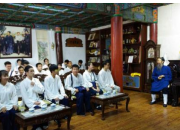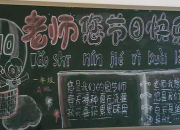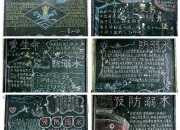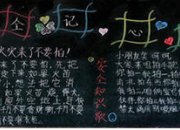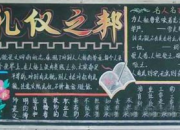2016年双城记英文读后感
时间:2021-08-31《双城记》是英国作家查尔斯·狄更斯所著的一部以法国大革命为背景所写成的长篇历史小说,下面语文迷小编为大家带来了双城记的英文读后感,希望对你有帮助。
双城记英文读后感【1】
A Tale of Two Cities is one of Dickens’s masterpieces; the story is an exposure of the contradiction before France Revolution-the appealing of “Liberty, Equality, Fraternity” by France lower class.
The main clue of the novel is based on the terrible experience of Dr. Manette, the plot is very complex, attracting, and exciting. Lying at the heart of which we can see the themes from different people.
Sydney Carton
When I read the chapter pertaining to interrogation on Charles Darney, intuition tells that the lawyer assistant who feels at ease with his eyes fixed on the ceiling must be a very special man, which turned out to be right when I finished the whole book. He seems indifferent about everything, even his love. He is brilliant but he thinks otherwise, or rather, he thinks he is inferior to others. Even his master thinks that if he worried about this or that, he would make a great success. Feeling of humbleness is the fatal point leading the loss of his beloved one. If Lucie Manette lives with him, he thinks, she would sustain much hardship. At the end of the story, he sacrifices his life for his love willingly.
Many people say that love is selfish and egocentric, but the temperament of Sydney Carton tells us that love can be sublime and pure. Through this, Dickens tells us loving someone doesn’t mean you should live together with him or her. You can help your beloved one silently, even sacrifice for love. This is universal fraternity, I think, which is the sublimation of normal love. And also, Dickens may indicate that true love really exists, regardless of the situation is full of commotion or not.
Charles Darney
He’s born at a family of royal lineage-the son of Marquis. Regret and abomination fill in his mind for the cruelty and the crime his family have done to the poor. He determines to quit the right of inheritance of his family and moves to England to acting as a French teacher. When he comes back to France, his notorious and sadistic uncle who holds the succession of the family doesn’t welcome him. His uncle is doomed to death because of his cruelty. When he returns to England, he proposes marriage to Lucie Manette. He knows his proposal may not be accepted by Dr.Manette, for he is the son of the enemy of Dr.Manette. After the France Revolution breaks out, he returns to France again to save a servant. But unfortunately, he’s cast into prison.
Lucie Manette
She goes to France with Jarvis Lorry to take her father back, she shows great sympathy to Sydney Carton, and she prayed his husband would get an early deliverance from captivity.
She is a kind-hearted lady made of love and sympathy; she is also the incarnation of elegance.
Dr.Manette
As a victim of the gloom society, he lives a miserable and contradictory life. After releasing from prison, the only thing he does is making shoes, which become worse when he comes across a harsh situation. He loves his daughter just as she does to him, even when he knows that Charles Darney is the son of his enemy, he allow the proposal. And when he notices his daughter was totally down to know the fact that her husband was put into prison, he promise to her that he will rescue him out. He spares no effects to do that, in vain, though.
From this person, Dickens may tells that love between the lower-class family members are as pure as crystal.
Jarvis Lorry
An elderly manager at Tellson's Bank and a dear friend of Dr. Manette. He is very loyal to Dr. Manette. He accompanies them all the time without considering his own life.
Couple Defarge
They’re the leader of the revolution. Ernest Defarge, to some extent, is a good man. He was the servant of Dr.Manette, he provides accommodation for him. But his wife, Madame Defarge, is really a wicked woman. She knits all the time, she wants to kill all the people who lead a richer or happier life just out of envying and revenge. The result turns out to be dramatic: she’s killed by herself as a consequence that the gun goes off by accident.
Resurrection maybe is the main theme in the novel. Dickens here implied that he doesn’t agree the upper class treat the poor badly, meanwhile, he doesn’t agree the lower-class to overthrow the upper class. He hopes that they can live in harmony with each other. Underneath the lines, Dickens wants his readers to be careful that the same sort of revolution that so damaged France won't happen in Britain, which is shown to be nearly as unjust as France. But his warning is addressed not to the British lower classes, but to the aristocracy. He repeatedly uses the metaphor of sowing and reaping; if the aristocracy continues to plant the seeds of a revolution through behaving unjustly, they can be certain of harvesting that revolution in time. The lower classes do not have any agency in this metaphor: they simply react to the behavior of the aristocracy. In this sense it can be said that while Dickens sympathizes with the poor, he identifies with the rich: they are the book's audience, its "us" rather than its "them". Crush humanity out of shape once more, under similar hammers, and it will twist itself into the same tortured forms. Sow the same seed of rapacious license and oppression over again and it will surely yield the same fruit according to its kind.



